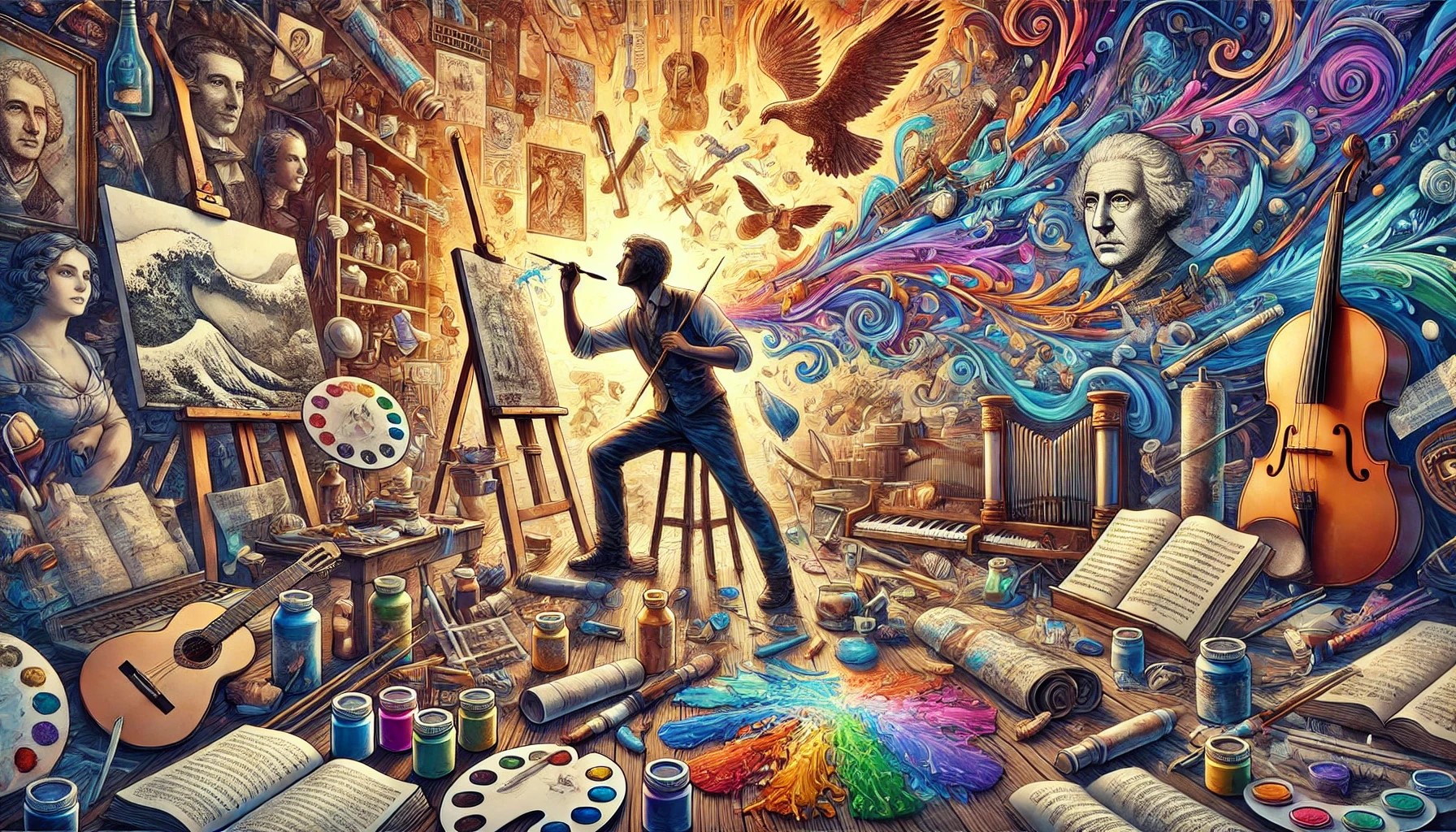
🎨 “Art is the daughter of freedom.”
Description: Friedrich Schiller (1759–1805), German poet, philosopher, historian, and playwright in 1793 or 1794
Source: Neue Deutsche Biographie, hrsg. von der Historischen Kommission bei der Bayerischen Akademie der Wissenschaften durch Hans Günter Hockerts, redigiert von Franz Menges, Bernhard Ebneth, Stefan Jordan, Claus Priesner, Maria Schimke und Regine Sonntag, 22. Band: Rohmer-Schinkel, mit ADB & NDB-Gesamtregister auf CD-ROM, zweite Ausgabe; Verlag Duncker & Humblot, Berlin 2005, XVI und 816 S., ISBN 3 428 11203-2 bzw. 3 428 11291-1 http://idw-online.de/pages/en/image18163
Author: Ludovike Simanowiz (1759–1827)
Friedrich Schiller beautifully encapsulates the connection between freedom and artistic expression. Celebrate the freedom to create. Use your artistic expression to explore and share your unique perspective. Let creativity be your voice, allowing it to communicate your thoughts, emotions, and experiences to the world. 🌟🖌️
Today, take a moment to engage in any form of art that inspires you – whether it’s painting, writing, music, dance, or any other creative pursuit. Embrace the freedom to express yourself without boundaries or limitations. Through art, you can explore new ideas, challenge conventions, and connect with others on a profound level. 🎶✍️
Remember, your creativity is a powerful tool for self-discovery and communication. It reflects your individuality and the freedom you possess. Let your art shine brightly, inspiring others and adding beauty to the world. Celebrate the endless possibilities that come with the freedom to create. 🌈✨
Friedrich Schiller, born Johann Christoph Friedrich von Schiller on November 10, 1759, in Marbach am Neckar, Germany, was a renowned German poet, philosopher, physician, historian, and playwright. He is considered one of the most important figures in German literature and a central figure of the Weimar Classicism movement, alongside Johann Wolfgang von Goethe.
Schiller’s early life was marked by hardship and strict discipline. His father, an officer and surgeon in the army, enrolled him in a military academy, where Schiller was trained in medicine and law. Despite the rigid environment, Schiller pursued his passion for literature, writing his first play, “The Robbers” (Die Räuber), in 1781. The play, which critiqued political and social injustices, was a sensational success and established Schiller’s reputation as a dramatic writer.
His works often addressed themes of freedom, justice, and human dignity, reflecting the Enlightenment ideals of his time. Some of his most famous plays include “William Tell” (Wilhelm Tell), “Maria Stuart,” “Don Carlos,” and “The Maid of Orleans” (Die Jungfrau von Orleans). These works are celebrated for their powerful characters, complex moral questions, and eloquent language.
In addition to his dramatic works, Schiller was a prolific poet and essayist. His philosophical writings, such as “On the Aesthetic Education of Man” and “Letters on the Aesthetic Education of Man,” explore the relationship between art, beauty, and moral development, arguing that aesthetic experience can lead to personal and social improvement.
Schiller’s friendship with Goethe was a significant influence on his career. Together, they developed the Weimar Classicism movement, which sought to harmonize the ideals of classical art with contemporary German culture. This collaboration produced some of the most enduring works in German literature and cemented their legacy as cultural icons.
Despite his literary success, Schiller’s life was plagued by health issues. He suffered from chronic illness, which ultimately led to his early death on May 9, 1805, at the age of 45.
Friedrich Schiller’s contributions to literature, philosophy, and drama have left a lasting impact on the world of arts and letters. His works continue to be studied and performed, inspiring generations with their profound exploration of human nature and societal ideals.